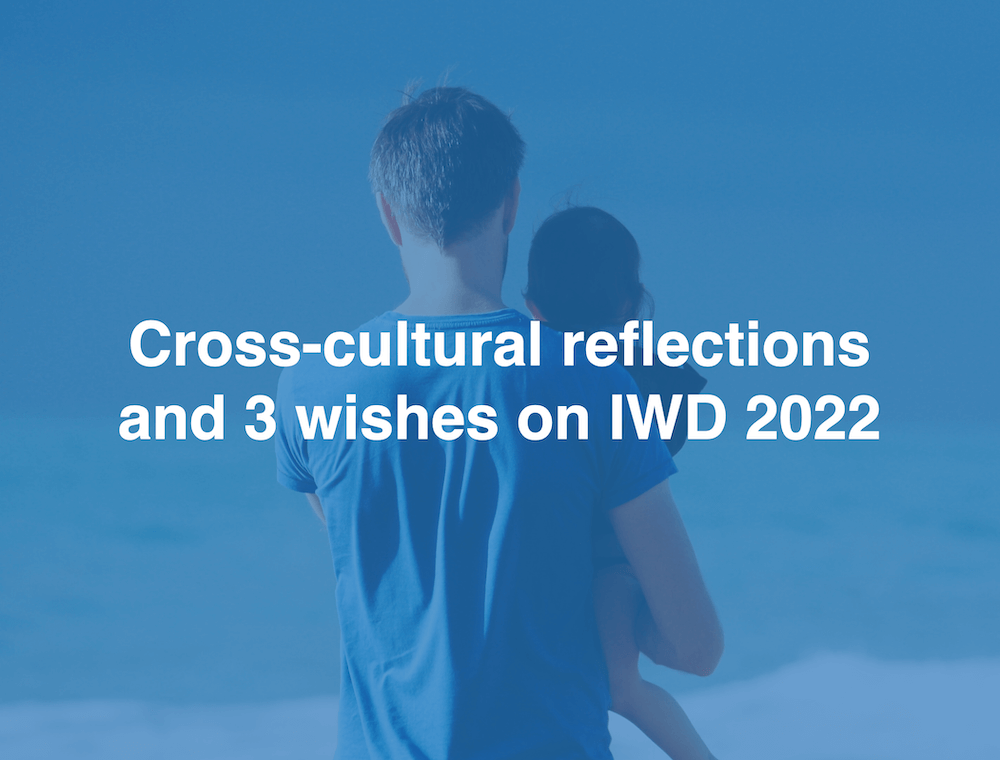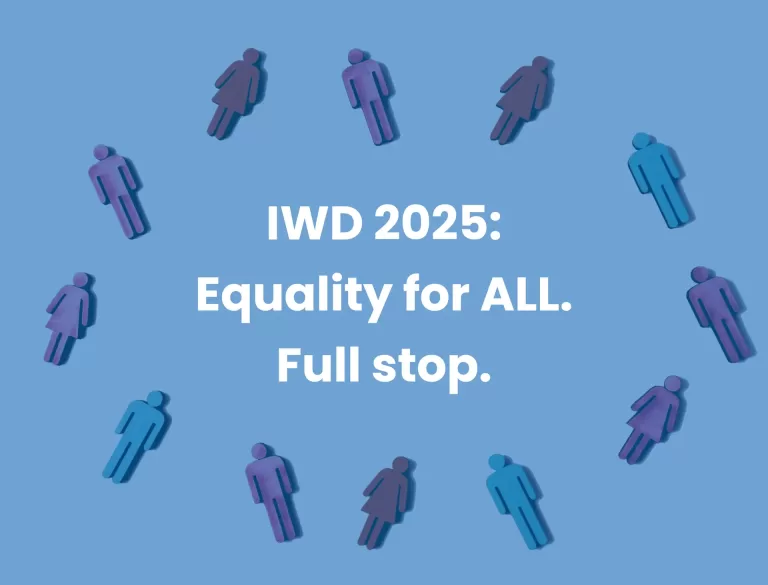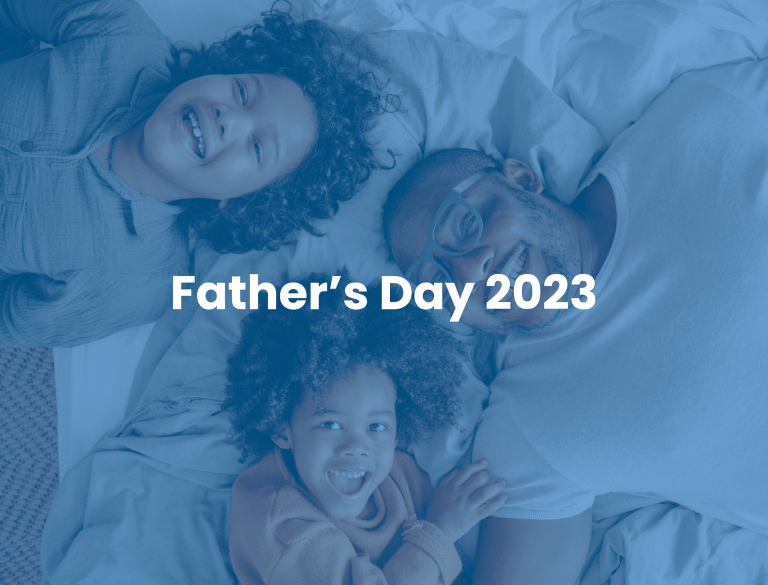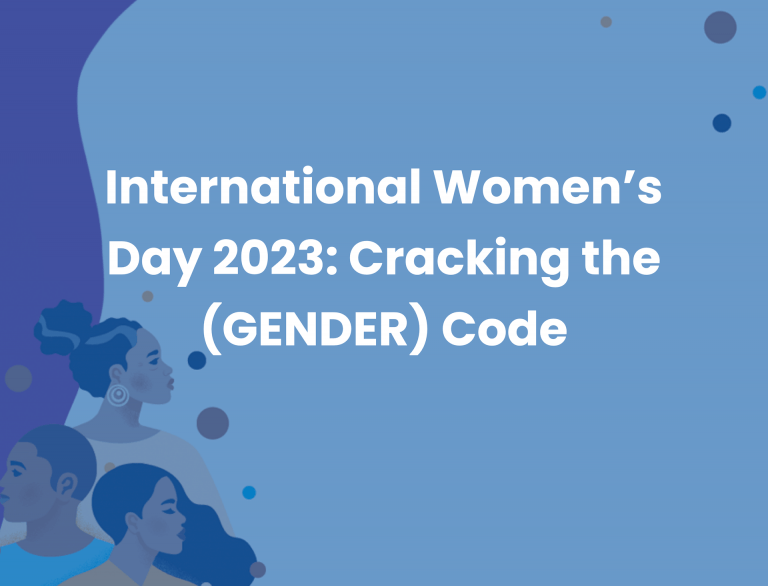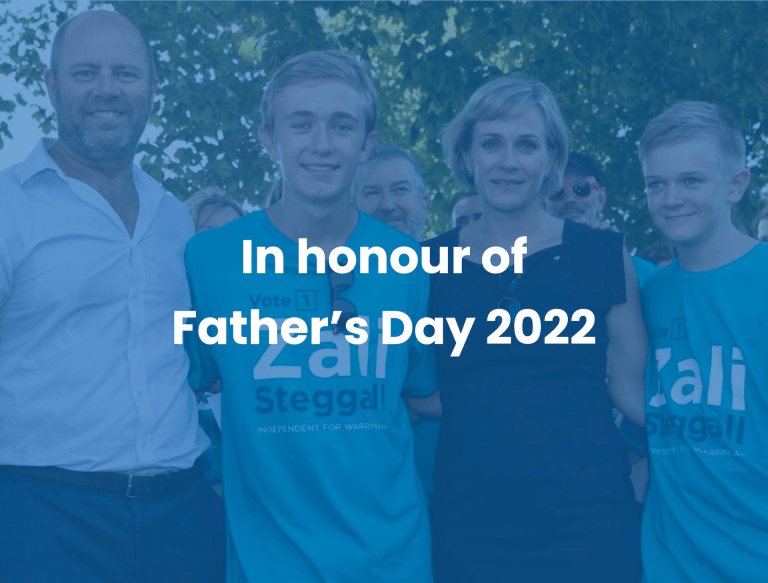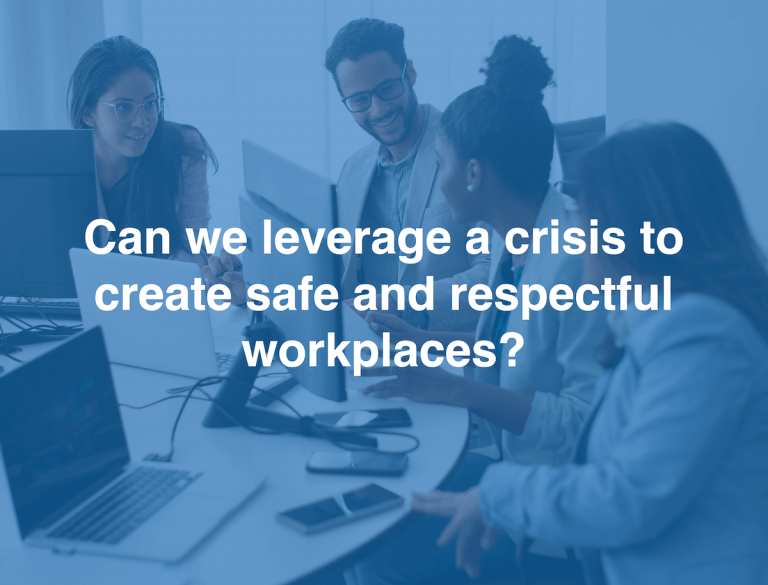Cross-cultural reflections and 3 wishes on IWD 2022
When my kids were born in Quebec twenty years ago, I took six months of federally subsidised maternity leave. Whilst it wasn’t part of public or corporate policy at the time, my husband took 4 weeks – to bond with his babies and support his wife. Today, my Toronto-based nephew and his partner have access to a full year.
When we moved to Sydney in 2005, AUS hadn’t yet introduced paid parental leave despite persistent efforts by advocates and politicians alike. A scheme was finally introduced in 2010. Today it’s one of the least generous, most gendered in the OECD. That, in combination with limited access to affordable childcare and a gender pay gap of 14%, has resulted in the 4th highest rate of women working part-time and the perpetuation of a deeply entrenched male breadwinner, female carer culture.
Which brings me to bias – informed by our social conditioning and extremely difficult to break without exploring its source. Whether 35 or 55, most men in AUS have grown up with a breadwinner dad and stay-at-home or part-time working mom. Many corporate leaders have attended single-sex schools and played gender-segregated sport. The former unconsciously impacts hiring and promotion decisions; the latter – suboptimal attitudes towards women.
It also holds men back. The highest cause of death amongst men aged 18-45 is suicide, in part because of rigid gender norms preventing men from discussing mental health issues, and outdated societal expectations around the role of men as providers. Men in gender-equal relationships, sharing care and career responsibilities, report better mental, physical, and sexual health and improved relationships with kids and partners.
So, my three wishes for #IWD2022:
1. Talk with your partner.
Help him understand the impact of upbringing on our conscious and unconscious beliefs around the role of men and women. Whilst the rage expressed by hundreds of thousands of women across the country is thoroughly justified, unleashing fury on the person we share our lives with is rarely an effective approach (I’m speaking from experience). Instead, try the Nancy Pelosi method: be passionate in your intent, dispassionate in delivery. And read Eve Rodsky’s Fair Play in advance – a calm, cool prescription to share the chores and save your marriage.
2. Shift the narrative.
We know full well how gender equality will benefit women. But there’s also plenty in it for men (as noted above). If we constantly present sharing care as pure drudgery, why would anyone want to sign up. Millennial men are already on board – they want to play an active role in their kid’s lives. Work with them. Be their allies at work, advocating for equal parental leave and supporting them to break the stigma imposed by our culture. And support advocacy groups like @TheParenthood and @ThrivebyFive, fighting for adequate parental leave and affordable, quality childcare.
3. Vote like your life depends on it.
Because it does. There’s an interesting correlation between climate, gender equality and politics. Female-led countries have more robust climate and family-friendly policies. We’re less than three months away from a federal election. Once every three years, we can choose a candidate who represents our values and our concerns. For the sake of ourselves, our children, and our planet, please vote wisely. And encourage your friends, family, and colleagues to do the same.
Engage. Advocate. Vote.
Happy #IWD2022

